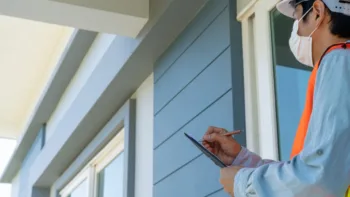
One of the most expensive things you are likely to buy in your lifetime is a house. For that reason, it is vital to make sure your home purchase is a worthwhile investment.
That is why a home inspection can be an essential step in the homebuying process. Here are five things to keep in mind for a home inspection.
1. You Need to Pay for Home Inspections
A home inspection is likely to cost $350 to $450, on average. However, the costs are different for every home.
Keep in mind you may need multiple home inspections if the first home you choose does not work out. Factor those costs into your budget, and remember inspection costs vary by:
- Age of the Home
- Size of the Home
- Geographic Location
2. Choose a Home Inspector Carefully
Choosing a home inspector can sometimes be tricky. There are many to pick from, and they all have varying rates.
In general, a cheap home inspector may cut corners during the inspection process. He or she also may not use the best equipment.
When in doubt, ask your real estate agent for a recommendation. Most real estate agents have preferred home inspectors they work with on a regular basis.
3. You Should Attend Each Home Inspection to Ask Questions
You can ask your home inspector questions at any time, including before or after the inspection date. However, home inspection day is typically the best day to ask the home inspector questions.
It is helpful to walk through the house together. That way, he or she can point out any obvious problems to you in person. You can also use your own observations to your advantage.
4. You May Need to Keep Your Home Inspector on Track
Your home inspector may cut corners during the home inspection. For instance, he or she may not check crawl spaces.
Even an expert home inspector doing his or her best is only human. Therefore, the potential for mistakes or overlooking something is always present. You are more likely to notice such errors when you attend the inspection yourself.
5. You Need to Know What Home’s Flaws Mean for You
After every home inspection a written report is issued. When you read your report, do not get overwhelmed.
The home inspector may make note of multiple minor flaws or small damage points for you to address. You do not need to address all of them at once.
Only the most critical flaws are important to address for home purchasing purposes. Some of those flaws may give you leverage to negotiate a lower sale price.
By Admin –